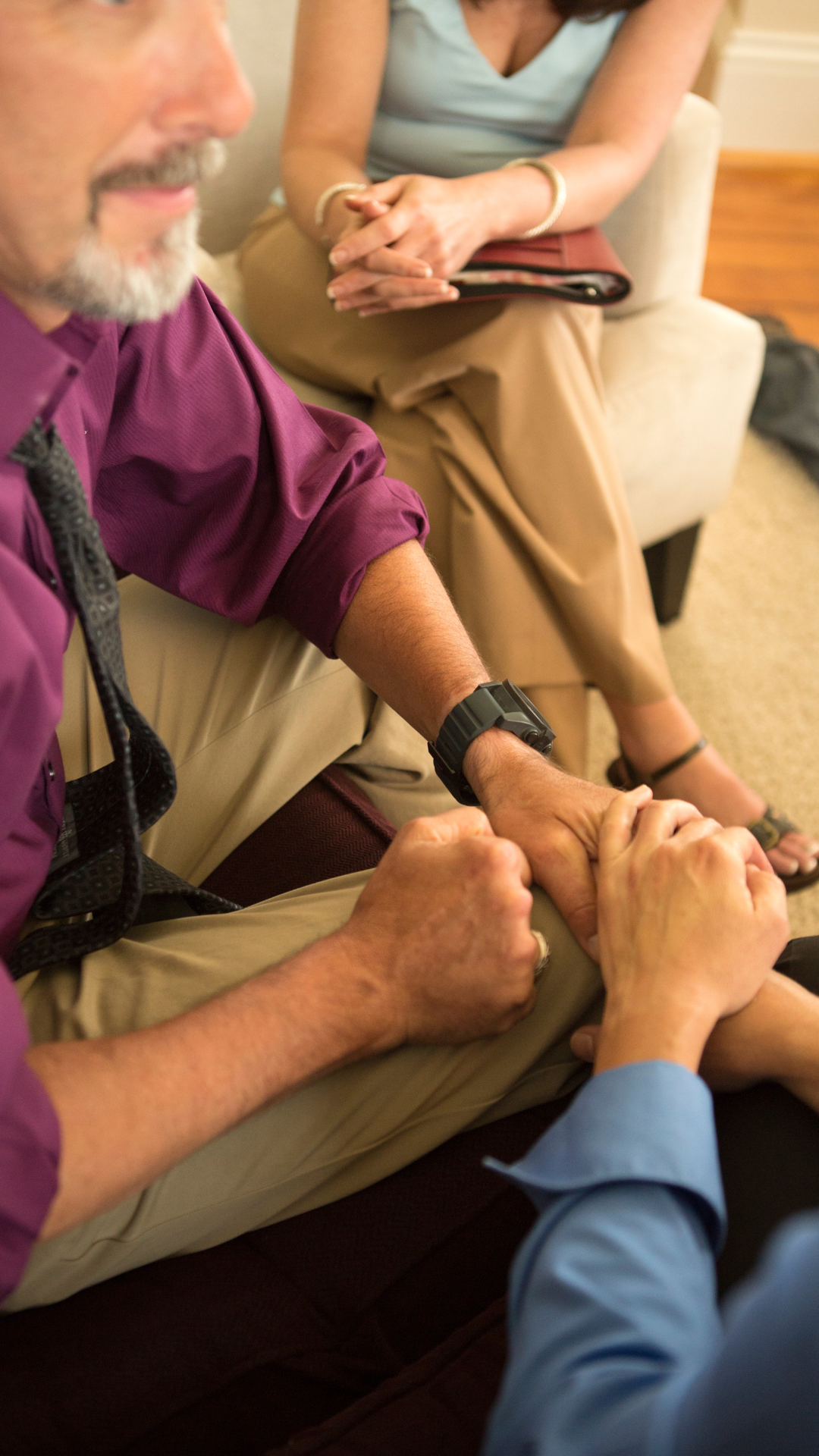Depression Guide and Treatment
Symptoms, causes, & effective therapy options.
Depression: Signs, Symptoms, and Treatment Options
Feeling down from time to time is a normal part of life. We all experience sadness, loss, and moments of despair. But when that feeling of emptiness and hopelessness refuses to lift, it might be more than just a bad mood. It could be depression. This condition can feel incredibly isolating, casting a shadow over every aspect of your life. If you are struggling with these feelings, please know you are not alone, and your experience is valid.
Depression is a treatable medical condition, not a sign of weakness or a character flaw. Acknowledging that you need support is a powerful act of self-compassion. This guide is here to offer clarity and hope. We will explore what depression is, what causes it, and the effective paths to treatment that can help you find your way back to the light.

What is Depression?
Depression, also known as major depressive disorder, is a mood disorder that causes a persistent feeling of sadness and a loss of interest in activities you once enjoyed. It affects how you feel, think, and behave and can lead to a variety of emotional and physical problems. It is more than just feeling blue; it is a serious condition that can make it difficult to function in your day-to-day life.
Recognizing depression is the first step toward healing. It appears in different forms and its symptoms can vary widely from person to person.

Types of Depression
Common Symptoms of Depression
The symptoms of depression are not just emotional. They can be physical, cognitive, and behavioral. Do any of these feel familiar?
- Emotional Symptoms: Persistent sadness, feelings of emptiness, hopelessness, guilt, or worthlessness. You might also experience irritability and a loss of interest or pleasure in most activities.
- Physical Symptoms: Significant changes in appetite or weight, chronic fatigue, unexplained aches and pains, and sleep disturbances (insomnia or oversleeping).
- Cognitive Symptoms: Difficulty concentrating, remembering details, and making decisions. You might also have recurrent thoughts of death or suicide.
- Behavioral Symptoms: Withdrawing from friends and family, neglecting responsibilities, and losing motivation to engage in formerly enjoyable hobbies.
If you are experiencing these symptoms, it’s a sign that you are carrying a heavy burden. It is okay to ask for help to lighten the load.

Causes and Risk Factors
There is no single cause of depression. It often results from a complex combination of genetic, biological, environmental, and psychological factors. Understanding these risk factors can provide insight into why you might be feeling this way.
- Brain Chemistry: Neurotransmitters are naturally occurring brain chemicals that likely play a role in depression. An imbalance in these chemicals may contribute to symptoms.
- Genetics: Depression can run in families. If you have a close relative with depression, you may be at a higher risk of developing it.
- Life Events: Traumatic or stressful events, such as the loss of a loved one, financial problems, a difficult relationship, or major life changes, can trigger depression.
- Medical Conditions: Chronic illness, chronic pain, or hormonal changes (like those in menopause or from thyroid problems) can sometimes lead to depression.
- Personality: People with low self-esteem, who are easily overwhelmed by stress, or who are generally pessimistic appear to be more vulnerable to depression.
It’s important to remember that you can have several risk factors and not develop depression, or you can develop it with no apparent cause. Whatever the reason, your feelings are real and deserve care.
Therapy Approaches to Depression
Therapy is one of the most effective treatments for depression. It provides a supportive, confidential environment where you can explore your feelings, thoughts, and behaviors. A therapist can help you develop coping strategies, solve problems, and change the patterns that contribute to your depression. The goal is to empower you with the tools to manage your symptoms and improve your quality of life.
Several evidence-based approaches are used to treat depression:
- Cognitive Behavioral Therapy (CBT): This is a highly effective therapy that focuses on identifying and changing negative thought patterns and behaviors. You learn to challenge distorted thinking and develop healthier, more realistic perspectives.
- Interpersonal Therapy: This approach focuses on your relationships with others and how they affect your mood. Thus tyoe of therapy helps you resolve relationship problems and improve how you relate to the people in your life.
- Psychodynamic Therapy: This therapy helps you understand how past experiences, often from childhood, may be influencing your current feelings and behaviors. By gaining insight into unresolved conflicts, you can work toward healing.
- Mindfulness-Based Therapies: These approaches help you focus on the present, encouraging gentle awareness of your thoughts, feelings, and surroundings. By practicing mindfulness, you can learn to step back from unhelpful thought patterns and respond to challenges with greater calm and clarity. Methods like Mindfulness-Based Cognitive Therapy (MBCT) integrate mindfulness exercises with cognitive skills, supporting symptom relief and helping to prevent difficult feelings from returning.
- Dialectical Behavior Therapy (DBT): DBT is especially helpful for individuals who struggle with strong emotions or urges that can feel overwhelming. This approach blends mindfulness with practical skills for managing distress, regulating emotions, and building healthier relationships. For many, learning these strategies through DBT can make it easier to handle challenging moments and reduce patterns that contribute to depression.
In some cases, therapy may be combined with medication, such as antidepressants. Your therapist can work with you and your doctor to determine the best course of treatment for your specific needs.
How to Support a Loved One With Depression
Watching someone you care about struggle with depression can be heartbreaking and confusing. You may feel helpless, but your support can make a significant difference. Your role isn’t to “fix” them but to offer compassion, patience, and encouragement.
Here are some ways you can help:
- Listen Without Judgment: Offer a listening ear. Let them know you are there for them and that you care. Avoid giving unsolicited advice or saying things like “just snap out of it.” Instead, validate their feelings by saying, “That sounds incredibly difficult.”
- Encourage Professional Help: Gently suggest they seek help from a doctor or therapist. You can even offer to help them find a professional or go with them to their first appointment.
- Be Patient: Recovery from depression takes time. There will be good days and bad days. Offer your consistent support and celebrate small victories with them.
- Help with Daily Tasks: Depression can make even simple tasks feel overwhelming. Offer to help with chores, errands, or cooking a meal. This small gesture can provide immense relief.
- Take Care of Yourself: Supporting someone with depression can be emotionally draining. It is crucial to set boundaries and take care of your own mental and physical health.
FAQs About Depression and Treatment
Living with depression often means carrying a weight that can feel invisible to others but very real to you. It’s understandable to have questions about what you’re experiencing and how you might begin to move forward. We’ve answered some of the most common questions about depression below to help you feel informed and supported. Reaching out for help is a courageous step, and you don’t have to navigate this journey alone.
What is depression?
Depression is more than having a few difficult days or feeling low now and then. It is a medical condition that can cause ongoing feelings of sadness, emptiness, and a loss of interest in things that once brought you joy. This mood disorder affects both body and mind, making it tough to handle routine responsibilities. It’s important to remember: depression is treatable, and needing help is not a sign of personal failure.
How do I know if I have depression?
Only a qualified professional can diagnose depression, but there are signs that signal you may need extra support. If you notice that a low mood is lingering for weeks, find yourself sleeping or eating more or less than usual, lose interest in activities, or struggle to concentrate, it might be time to talk to someone. Other red flags include persistent fatigue, feelings of guilt or worthlessness, or withdrawing from relationships. When these symptoms disrupt your daily life, reaching out for help is an important next step.
What causes depression?
Depression has no single cause. Instead, it typically develops from a combination of influences—your genetic makeup, brain chemistry, medical history, and experiences with stress or trauma. Major life changes, a chronic health condition, or ongoing stress can all play a part. Remember, just because you’re struggling doesn’t mean you’ve done something wrong; recognizing the multi-layered causes helps reduce self-blame and opens the door to healing.
What types of therapy are effective for depression?
Many forms of therapy can help manage and reduce depression symptoms. Some of the most effective include:
- Cognitive Behavioral Therapy (CBT): Focuses on identifying and changing unhelpful thought patterns and behaviors that contribute to depression.
- Interpersonal Therapy (IPT): Centers on improving communication and relationship skills that may be impacted by or contributing to your symptoms.
- Psychodynamic Therapy: Explores how your past, including early experiences and relationships, may be affecting how you feel and act today.
A therapist will talk with you about which approach best fits your needs and preferences.
Can depression be treated with medication?
Medication, often in the form of antidepressants, can be an important piece of treatment for some people. These medicines work by balancing brain chemicals related to mood. Many find that combining therapy for ongoing support with medication for symptom relief offers the most benefit. If you’re considering this route, a doctor or mental health provider can help you weigh the pros and cons for your situation.
How can I support a loved one with depression?
Supporting someone who is living with depression can be both meaningful and challenging. One of the most helpful things you can do is offer your presence and listen without judgment. Be patient and understanding—they may need time and space to recover. Encouraging professional help is important, and sometimes helping with everyday tasks can provide extra relief. Don’t forget to take care of yourself, too. Supporting someone else is easier when you’re mindful of your own needs and limits.
When to Consider Therapy
Reaching out for therapy is a meaningful choice when daily life feels overwhelming or when emotional pain becomes difficult to manage on your own. If sadness, lack of motivation, or ongoing fatigue are making it hard for you to work, keep up with responsibilities, or connect with others, professional support can offer relief and guidance. You may also benefit from therapy if you notice patterns of withdrawing from loved ones, losing enjoyment in activities that once brought happiness, or facing persistent feelings of self-doubt or despair. Remember, you are not alone—if these challenges persist, or if you ever experience thoughts of harming yourself, seeking help is a strong step toward a better tomorrow. Therapy can provide a confidential space to process your feelings, learn new coping strategies, and regain hope for the future.
Depression Resources for Maplewood Counseling
Resources for Managing Depression
Beyond professional therapy, there are many resources and self-care strategies that can support your journey toward wellness. These practices can help you build resilience and manage symptoms in your daily life.
- Build a Routine: Depression can strip away the structure from your life. Setting a gentle daily schedule can help you regain a sense of control.
- Get Moving: Physical activity has a powerful effect on mood. Even a short 15-minute walk can release endorphins and improve your outlook.
- Eat a Balanced Diet: What you eat can affect your mood. Focus on a diet rich in fruits, vegetables, and whole grains, and try to limit processed foods and sugar.
- Stay Connected: Isolation fuels depression. Make an effort to stay in touch with friends and family, even when you don’t feel like it.
- Practice Mindfulness: Techniques like meditation and deep breathing can help ground you in the present moment and quiet the storm of negative thoughts.
Helpful Depression Information and resources
- FAQs About Anxiety and Therapy
- How Depression Affects Relationships
- Additional Mental Health Resources
- Mental Wellness Blog
Taking the first step toward getting help is often the hardest, but it is a profound act of hope. You do not have to carry this weight alone.
If you are ready to move toward healing and rediscover joy and meaning in your life, we are here to support you. Reach out to Maplewood Counseling today to schedule a consultation and begin your journey to recovery.
Helpful Resources
- Understanding Anxiety: Learn how therapy can help manage anxiety.
- Grief Counseling: Support for processing loss and navigating grief.
- Individual Therapy: Personalized support for managing depression and stress.
- Guide to Self-Esteem: Build confidence and self-worth.
- Trauma-Informed Therapy: Support for healing from past trauma.
At Maplewood Counseling, we are dedicated to supporting individuals, couples, and families in achieving mental wellness. Based in Maplewood, NJ, we proudly serve the Essex County, NJ community and offer statewide telehealth services to ensure accessible care for all. Whether you’re seeking help for anxiety, depression, relationship challenges, or personal growth, our experienced team is here to guide you every step of the way.
We Use HIPAA Compliant Telehealth Platform SimplePractice for our Telehealth Sessions




